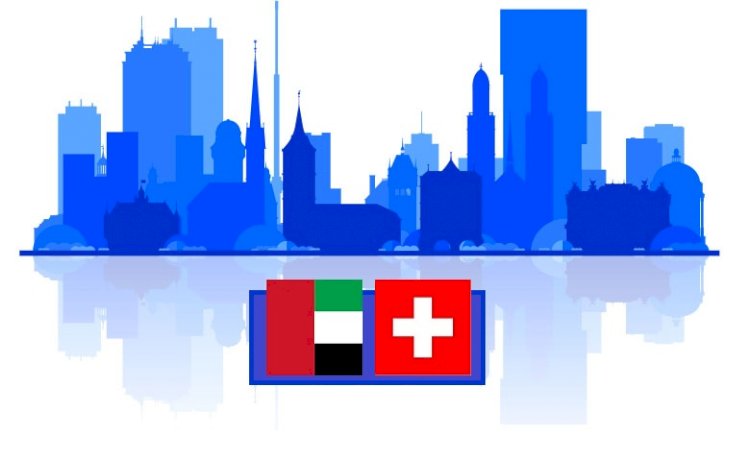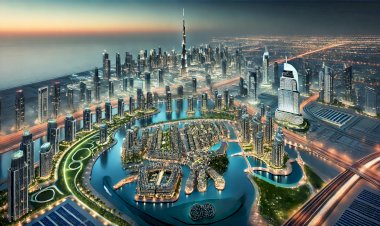Analysis of Different Economic and Civil Aspects of Switzerland and UAE

With a highly skilled workforce, a strong legal system, and predictable business conditions, Switzerland is renowned for these attributes. The nation is a hub for foreign investment and trade and has a well-developed financial system. Additionally, Switzerland has an advanced network of roads, railways, and airports, as well as access to significant ports and waterways.
To encourage economic expansion and draw in foreign investment, the UAE government has made significant efforts. The nation has a welcoming tax and regulatory environment and has created free zones to entice foreign businesses and investors. With a workforce that is both highly skilled and diverse, the UAE is also home to several significant multinational corporations. The nation has made sizable investments in cutting-edge infrastructure, including the creation of top-notch airports, seaports, and transportation networks.
Switzerland and the United Arab Emirates have both made efforts to encourage innovation and entrepreneurship. Many prestigious universities and research institutions can be found in Switzerland, and the country's government has put in place programs to encourage innovation and technology transfer. A focus on advancing high-tech industries and creating a knowledge-based economy has led the UAE to invest heavily in innovation.
Both nations have highly developed digital and telecommunications infrastructure, including high-speed internet and cutting-edge mobile networks. Both nations have also made investments in green technology and sustainable infrastructure with a goal of lowering carbon emissions.
In order to support economic growth and development, Switzerland and the UAE have established hospitable business environments and made investments in cutting-edge infrastructure. Both nations place a high priority on innovation, entrepreneurship, and sustainability in their economic development strategies, despite differences in the specific policies and programs of the two nations. Through these initiatives, Switzerland and the United Arab Emirates have become economic powerhouses that are able to draw in foreign capital and business activity.
Contrary to common law, which is founded on judicial decisions and precedents, civil law is a body of written laws. The UAE and Switzerland both have civil law legal systems, which means that the foundation of their respective legal systems is the written laws and statutes.
The Swiss Civil Code, which was first published in 1907 and has since undergone numerous revisions, is what governs civil law in Switzerland. Contracts, property, family law, and inheritance are just a few of the legal topics covered by the Swiss Civil Code. The principles of individual liberty, equality, and justice serve as the foundation of the code.
Additionally, the UAE has a civil law legal framework that is governed by the UAE Civil Code. Since it was first introduced in 1985, the code has undergone numerous revisions. Contracts, property, family law, and inheritance are just a few of the legal topics covered by the UAE Civil Code. The code is based on Islamic law's tenets and emphasizes adhering to Shariah values and principles.
The source of law differs significantly between the civil law legal systems in Switzerland and the UAE. In Switzerland, legislation serves as the primary source of law, while in the United Arab Emirates, the legal system is more heavily influenced by Islamic law. This is so because the UAE is an Islamic nation, and Islamic law and principles form the foundation of the nation's legal system.
The UAE's court systems and Switzerland's are two countries with very different civil law traditions. The legal system in Switzerland is generally impartial and independent, with separate courts for civil, criminal, and administrative cases. The UAE's judicial system is based on Islamic principles and law, and there are separate courts for civil and Shariah cases. In addition to being influenced by the government, the UAE's judiciary may not be as impartial as that of Switzerland.
Both Switzerland and the United Arab Emirates have civil law systems, which means that the foundation of their legal systems is the written laws and statutes. The two nations' legal systems, however, are very different from one another. While the UAE's legal system is based on Islamic law and principles and has a court system with separate courts for civil and Shariah cases, Switzerland's legal system is primarily derived from legislation and has a separate court system for civil, criminal, and administrative cases.
The right of creators to manage the use and distribution of their work is provided by copyright laws, which are crucial for protecting intellectual property. The goals of copyright laws may differ from nation to nation, but they are all designed to uphold the rights of creators and promote originality and creativity.
In order to protect the rights of their creators, Switzerland and the United Arab Emirates (UAE) both have established thorough copyright laws. In this article, we'll examine the copyright regulations in these two nations as well as other crucial measures of their economic and social progress, such as GDP, average income, the influence of citizens in civil society, access to healthcare, and passport strength.
GDP and Average Income
According to 2019 data from the World Bank, Switzerland's average annual income is $83,716 compared to the UAE's per capita income of $37,186. The richest people in both nations earn significantly more than the average citizen, though there is a high level of income inequality in both.
Citizen Power in Civil Society
Political power is more centralized in the UAE, and there are fewer opportunities for citizens to participate in politics. Despite this, the UAE has made strides in fostering social and economic development, with a focus on empowering women and fostering tolerance and diversity.
Healthcare and education
In the United Arab Emirates, education is given top priority, with an emphasis on encouraging entrepreneurship and innovation. With free public education and a variety of international universities, the nation has significantly invested in its educational system. A strong healthcare system can be seen in the UAE's high life expectancy and low infant mortality rates.
Strength of Passport
Copyright Laws
The Copyright Law, passed in the United Arab Emirates in 2002 and revised in 2019, safeguards copyright. Creators' rights are outlined in the law, along with the consequences for violating copyright. The Copyright Office has also been established in the UAE to oversee copyright enforcement and offer advice to businesses and creators.
Human rights
In the UAE, human rights have been a subject of concern, with limited political freedom and restrictions on freedom of expression and association. However, the nation has significantly improved its human rights record in recent years, introducing new laws to safeguard women's rights and fight human trafficking, among other things.
Nature
The UAE, on the other hand, is renowned for its desert landscapes and the nation has worked to build sustainable infrastructure and lessen its carbon footprint. The UAE has put in place policies and programs to support renewable energy and lessen waste.
Democracy
Switzerland is renowned for its direct democracy system, which gives people a direct say in the political process. The country also has a multi-party system, with a range of political parties and regular elections.
In the United Arab Emirates, political power is more tightly held by the ruling family. Nevertheless, the country has made progress in increasing political participation, with the introduction of the Federal National Council, an advisory body that includes elected representatives.
While Switzerland and the UAE share many similarities in terms of economic and social development, there are also notable differences when it comes to human rights, nature, and democracy. To ensure the welfare and prosperity of their citizens as well as the protection of their natural resources, nations must continue to give priority to these areas.
We can look at the relative levels of reserve assets in Switzerland and the UAE to compare the wealth and capital that the government has for each citizen.
Swiss reserve assets as of September 2021 were $997.8 billion USD, or about $116,000 USD per person, according to the International Monetary Fund (IMF). This includes foreign currency reserves and gold holdings, which can be used to support the country's economy in times of crisis.
In comparison, the UAE had reserve assets of $103.9 billion USD as of September 2021, equivalent to about $10,500 USD per capita. The country's reserve assets consist mainly of foreign currency reserves held by the central bank, which can be used to support the country's monetary and exchange rate policies.
It is important to remember that reserve asset levels can change depending on a number of variables, including prevailing economic conditions and governmental policies.
In conclusion, Switzerland and the UAE both have significant levels of reserve assets, which are an important measure of their economic stability and capacity to deal with external shocks. It is crucial for governments to continue to prioritize policies that promote economic stability and well-being for their citizens. However, in general, having a robust level of reserve assets can help to ensure economic stability and provide a cushion in the event of a crisis.

 content-team
content-team 


















